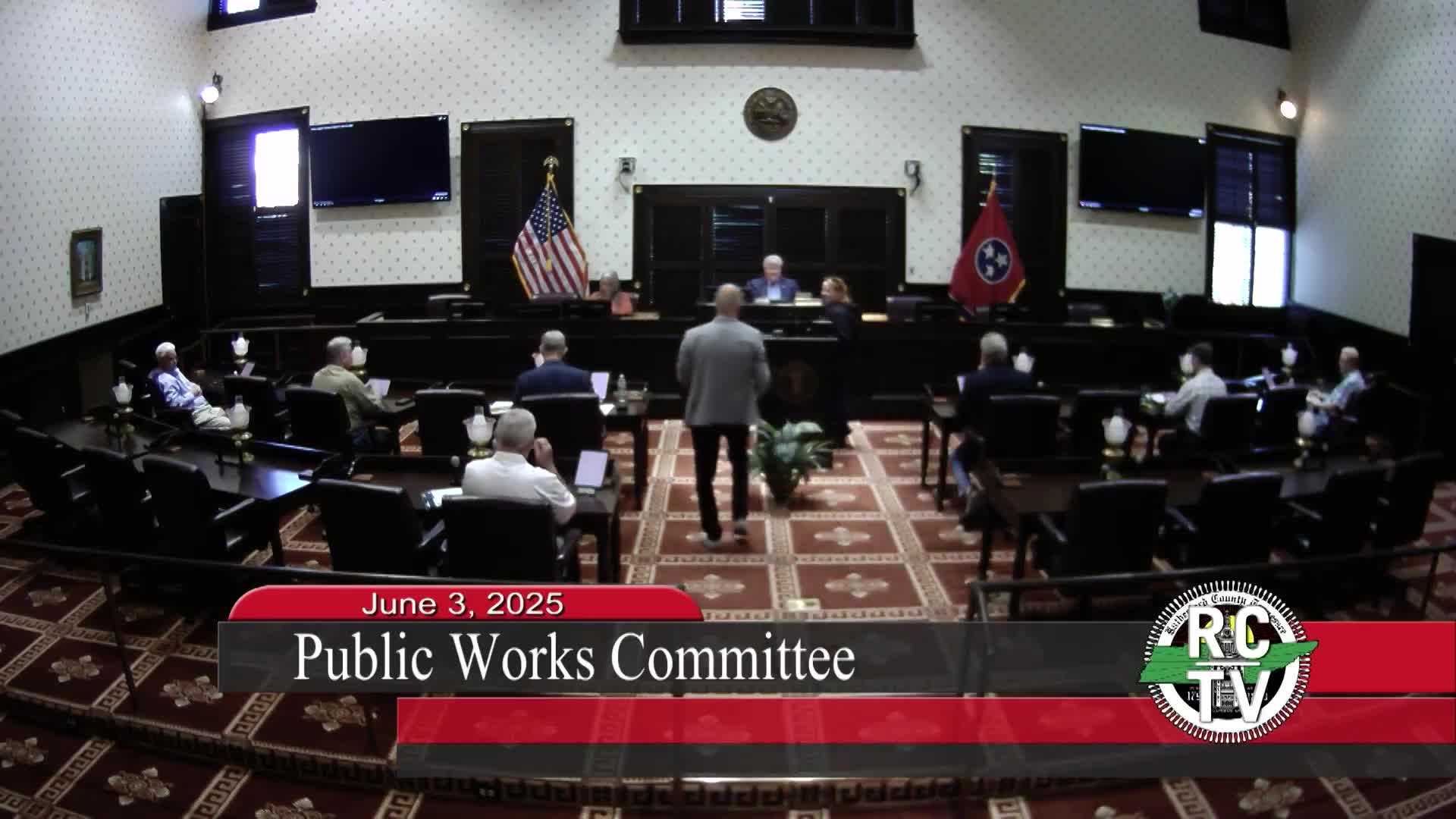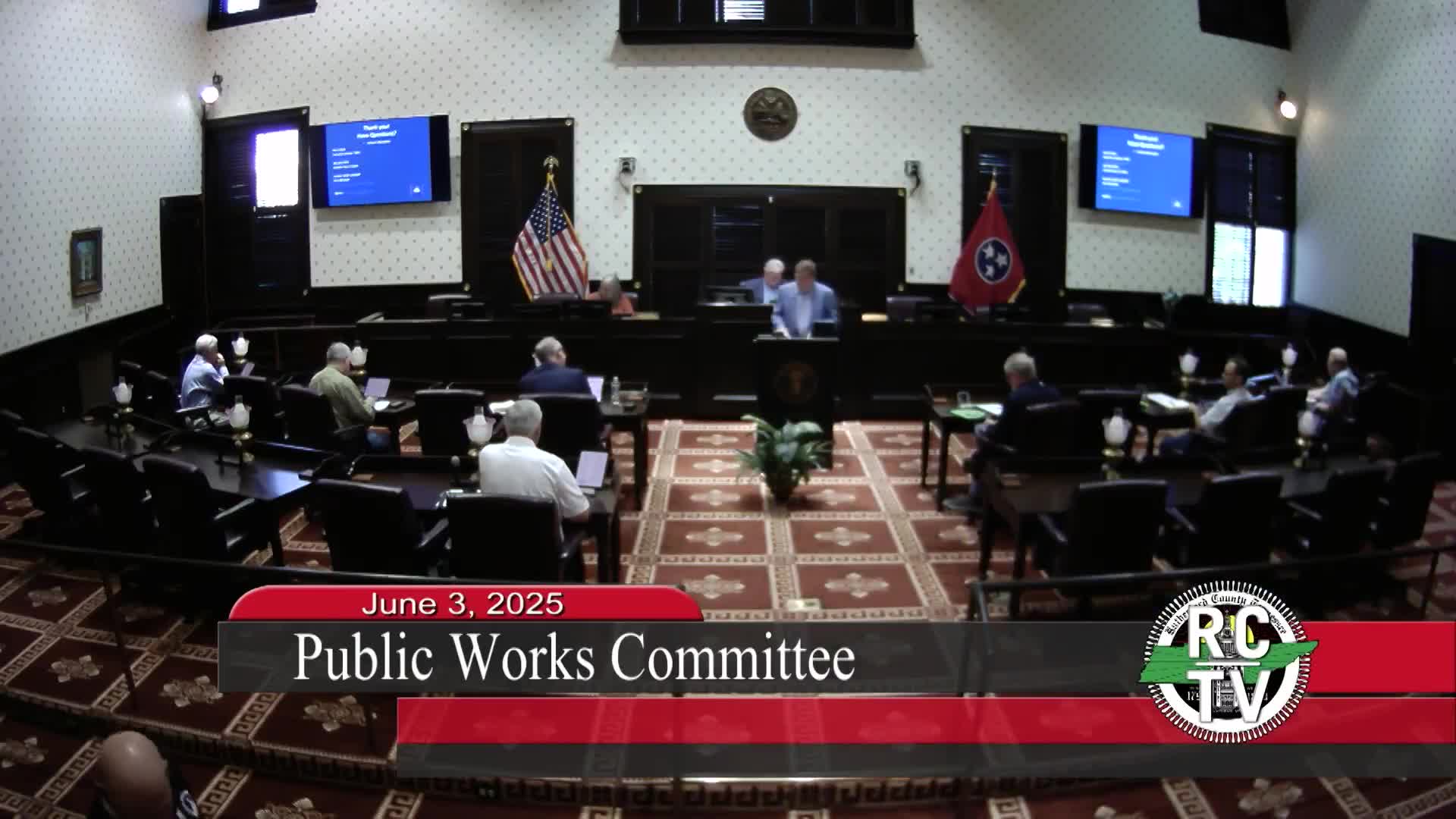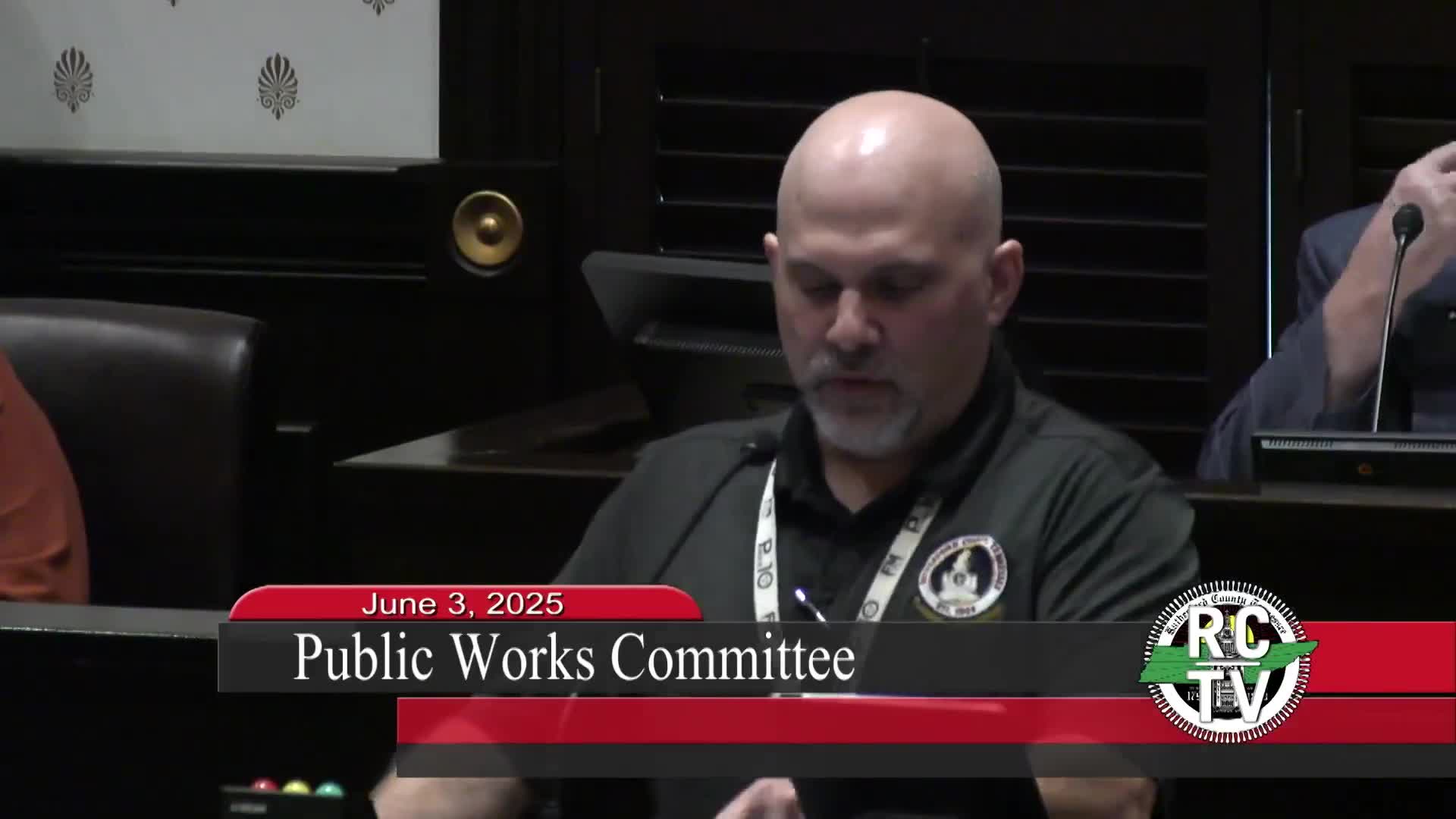Article not found
This article is no longer available. But don't worry—we've gathered other articles that discuss the same topic.

Rutherford committee hears pitch for Tennessee Waste to Jobs Act, votes to send county letter of support

Solid Waste Director reports diversion gains, limits mattress drop-offs and backs county support for producer-funded recycling

